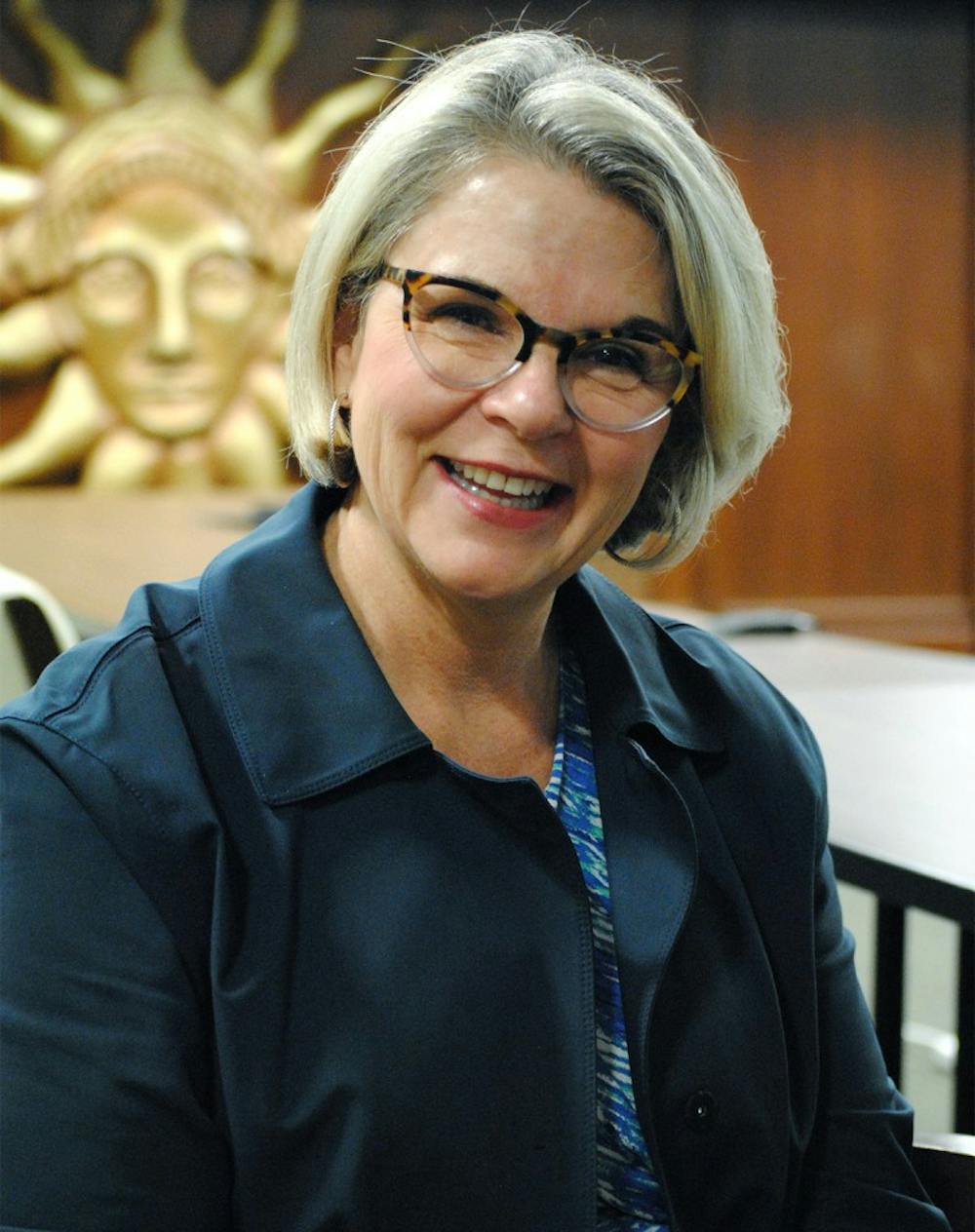After being hired as the new president of the UNC system, Margaret Spellings has recently completed a tour of all 17 UNC campuses. She sat down with Daily Tar Heel state and national editor Cole Stanley on Monday to discuss what her visits taught her and what plans she has for UNC and its students going forward.
The Daily Tar Heel: What has your impression been of the UNC system so far? What do you think our strengths are and what are some areas where we have room for improvement going forward?
President Margaret Spellings: It’s big, it’s diverse, it’s everywhere. People recognize this University — I think the bond referendum, with 67 percent passage shows the faith the people of this state have in us. I think they understand the centrality of it to growth and it being a differentiator from other states. I think some of the things where we have work to do are making sure that we’re not insular — making sure that we work outside our boundaries — while we can be proud of our heritage, we need to see what others are doing that works better and always be willing to adapt and embrace change where its needed.
DTH: If you could travel 10 years into the future, what concrete changes to the UNC system would you hope to see you had made?
MS: In 10 years, I would like students and taxpayers and policymakers to have a good bit more transparency to the offerings of this system and this University — you can envision a place where you could say “I want to be a teacher” and you would understand what’s the most efficient, highest quality, most productive way to get a teaching credential in this system. And that might be a combination of classes from a number of the institutions. All those organizational impediments that have burdened students, I think we can think creatively about how to do that so that we could have students get in and out of college as affordably and efficiently as possible. And when we did that, we would see completion rates go up, debt levels go down and we would see employment levels go up and more higher education propagated throughout our land.
DTH: What specific steps are being taken to address the unique concerns of our students who are veterans of the military?
MS: The institutions that are closest to our military bases really have those students as a core constituency, and I saw a good deal of that as I traveled around. They have a lot of places that vets could go, a lot of creation of community. We’ve also created the UNC-CORE system, which is a way to give credit for military experience and to make sure we’re making the trajectory to a degree or credential as effective and efficient as possible for them.
DTH: During your tour of the UNC campuses, did you learn any specific lessons from visiting our historically black colleges and universities?
MS: Yes. They’re meeting the needs of the frontier in higher education that we need to do better by. I like to say all the time that anyone can take a bunch of valedictorians and get them in and out of college. Our challenge as a state and nation is to provide first generation students with affordable, high quality education that’s convenient and realistic for them...And we have a lot of work to do in doing that. I see the HBCUs on the front lines of meeting the needs of the students who most need them.




